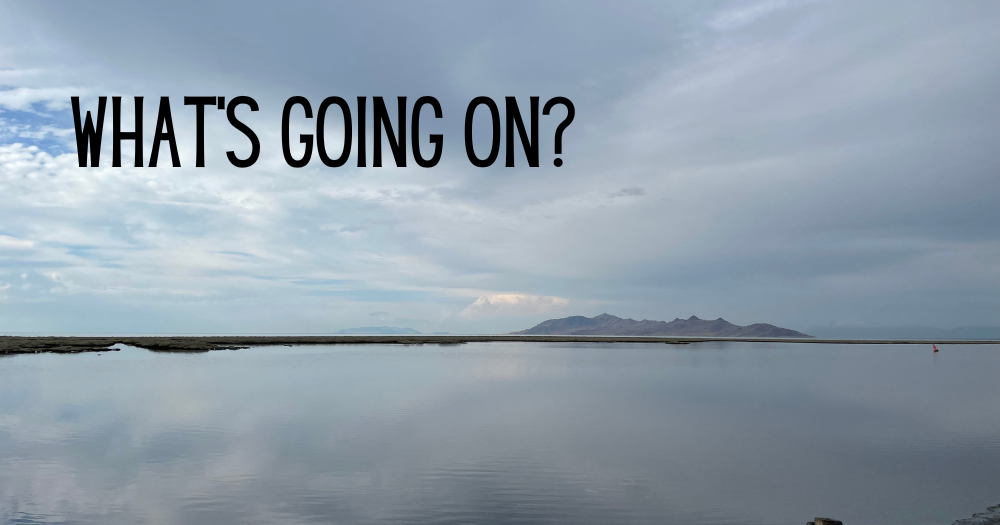
Recently, you may have seen the Great Salt Lake and the drought that’s been affecting Utah in the news. So, why should we care about the Great Salt Lake? Well, while I’m not trying to sound like a clickbait article, the reasons may shock you.
Why is the Salt Lake is drying up so fast?:
As scary as it sounds, the Great Salt Lake is nearly just a shell of what it once was due to overconsumption from humans and climate change. Over the past few decades, the population of Utah has grown rapidly, with people from around the nation flocking to cities like Salt Lake City and St. George to call their new homes. However, this rapid increase in population hasn’t been good for the Salt Lake as it can’t sustain itself as easily. Climate change is also a major factor as, with the little rainfall Utah has been receiving recently, the Salt Lake hasn’t been replenished. While this winter season has been great for the lake, it’s going to need more winters just like this one for it to reach healthy, sustainable levels again.
What happens if the Salt Lake dries up?:
While the Salt Lake isn’t completely dry, we’ve already been seeing some major impacts from the loss of water. One major problem is that the ecosystem that thrives off the lake is slowly collapsing. For example, several bird species that feed on the brine shrimp in the lake are now unable to find enough of these shrimp to sustain themselves. As a result, many of the birds eventually starve and can’t survive. Another major problem is that the bottom of the lake contains pollutants such as arsenic, lead, and mercury. If the lake were to dry up, the winds would pick up these pollutants and bring them into the city, causing major concerns for human health.
How can the Salt Lake be saved?:
If Salt Lake City continues to deplete the lake of its water without any changes, it’s expected to dry up in just 5 years. However, this is preventable if we advocate for larger change and keep in mind personal changes we make. If our city uses less water for everyday activities (lawncare, showers, etc…), it can make a major, positive impact on the lake. Along with this, if excess water is no longer used for recreational purposes, such as golf courses, so much water can be saved. An increase in rain and snowfall would also be extremely beneficial for the lake and the drought.
Overall, while the Salt Lake is drying up fast, it’s preventable. If Utah works together, lowers its water consumption, and stops using water for unnecessary reasons, the lake can be replenished.
Sources:
Brine shrimp. Utah Division of Wildlife Resources. (n.d.). Retrieved March 2, 2023, from https://wildlife.utah.gov/gslep/wildlife/brine-shrimp.html#:~:text=Avocets%2C%20stilts%2C%20phalaropes%20and%20waterfowl,winter%20when%20freshwater%20wetlands%20freeze
Vlamis, K. (n.d.). The Great Salt Lake in Utah is disappearing, leaving behind a toxic bowl of dust and potentially one of the greatest environmental disasters in US history. Business Insider. Retrieved March 2, 2023, from https://www.businessinsider.com/utah-great-salt-lake-disappearing-toxic-bowl-dust-lawmakers-bill-2023-2
